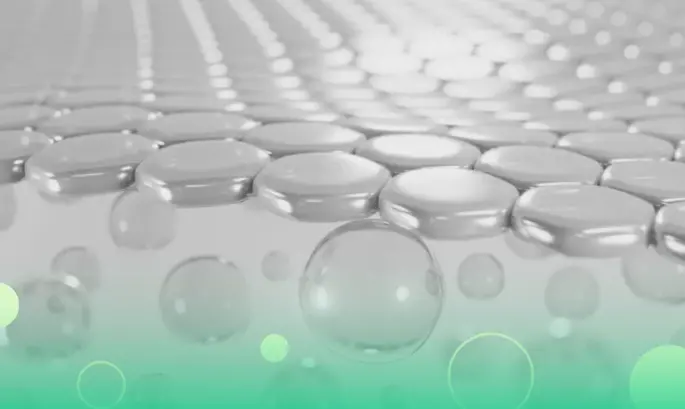The protein that gives skin elasticity falls from the age of 25, and supplementation may be indicated
Collagen is a protein produced naturally by the body that forms the structural component of connective tissues, skin, muscles, cartilage, tendons, ligaments, bones and joints. It is very important for maintaining the integrity of these sites and accounts for at least 30% of the total proteins produced by the body of a vertebrate.
What is collagen good for?
In the skin, the high concentration of collagen is what guarantees firmness and elasticity when you’re young. The problem is that, from the age of 25, there is a progressive and natural reduction in collagen production, which leads to the appearance of wrinkles and expression lines.
What accelerates the drop in collagen in the skin?
This process is further aggravated by factors that accelerate skin ageing, such as excessive and unprotected exposure to the sun, smoking, unbalanced diet, lack of hygiene, contact with environmental pollution, among others.
What happens when you lose collagen?
And it’s not just the skin that feels the impact of collagen loss. A decrease in the protein can also cause stiffness in the joints and consequences in other places where it is present in the body, such as bones and ligaments.
How can collagen be replenished?
For this reason, it is common to find recommendations for replacing lost collagen, suggesting that this could be done through foods rich in the protein, food supplements and even topical gels containing the substance. However, although replenishing collagen can bring benefits, not all of these methods work.
What is the best collagen to take?
Many foods are rich in collagen, but the Brazilian Society of Dermatology of São Paulo (SBD-SP) explains that the protein found in food is a high-weight molecule and therefore cannot be absorbed by the body.
The same happens with topical cosmetics: the molecule cannot penetrate the skin. Therefore, in order to actually replenish protein levels, hydrolyzed collagen must be consumed, also called collagen peptides, which is what is found in oral supplementation.
This is because, in this case, the molecule has been broken down into several amino acids, which can then be absorbed by the body to stimulate collagen production.
What is the best natural collagen?
When it comes to hydrolyzed collagen dietary supplements, the only ones that have been the subject of scientific studies are the Verisol and Peptan patents. This is why they are usually recommended by dermatologists. They are present in a number of supplements sold in various formats, such as powder, gummies and capsules.
When should you take collagen?
Studies show that from the age of 25 there is already a start to a drop in collagen production, of around 1% per year. However, there is no test that can measure the exact levels of the protein in the body.
For this reason, although you don’t need a prescription to buy hydrolyzed collagen, since it is approved as a food supplement by Anvisa, it is best to get advice on consumption from a dermatologist.
According to the Brazilian Society of Dermatology of Rio Grande do Sul (SBD – RS), the best results are obtained by patients over the age of 40, with an osteomuscular disease or high-performance athletes.
Is it good to take collagen every day?
A review of studies published in the British Journal of Sports Medicine showed that collagen supplementation led to a reduction in pain and an increase in function in patients with osteoarthritis of the hand, hip or knee after three months.
Other studies that evaluated the impact on the skin found an increase of up to 28% in hydration and 7% in elasticity, as well as an average reduction of 20% in periocular wrinkles (around the eyes) and 11% in cellulite ripples.
How long does it take for collagen to take effect?
To achieve the effects, it takes at least three months, which was the duration of the scientific studies. In these cases, the supplement is taken every day, usually in a dosage ranging from 5g to 10g.
Evaluations by Anvisa and the Food and Drug Administration (FDA), the US regulatory agency, also reinforce that consumption is safe and there is no risk of associated side effects or contraindications.
Does supplementation reverse collagen loss?
It’s important to align expectations when starting to take collagen supplements. This is because supplementation will not be able to reverse all the loss that occurs with age. Therefore, it may help to improve skin elasticity, but it won’t eliminate wrinkles and expression lines.
In addition, the effects are more noticeable when associated with other practices that prevent collagen loss in everyday life, such as using sunscreen daily, getting enough sleep, not smoking and adopting good eating habits.

